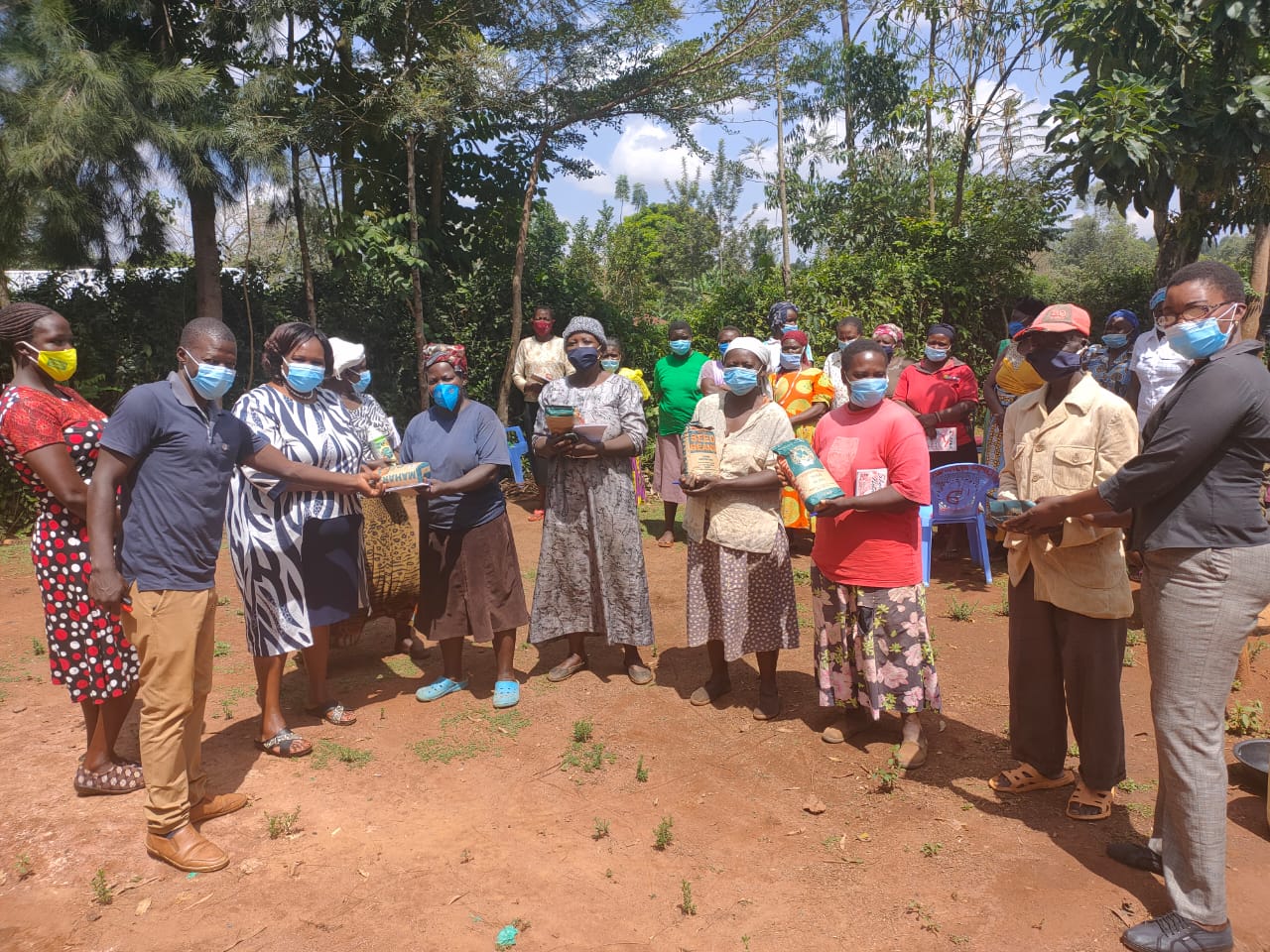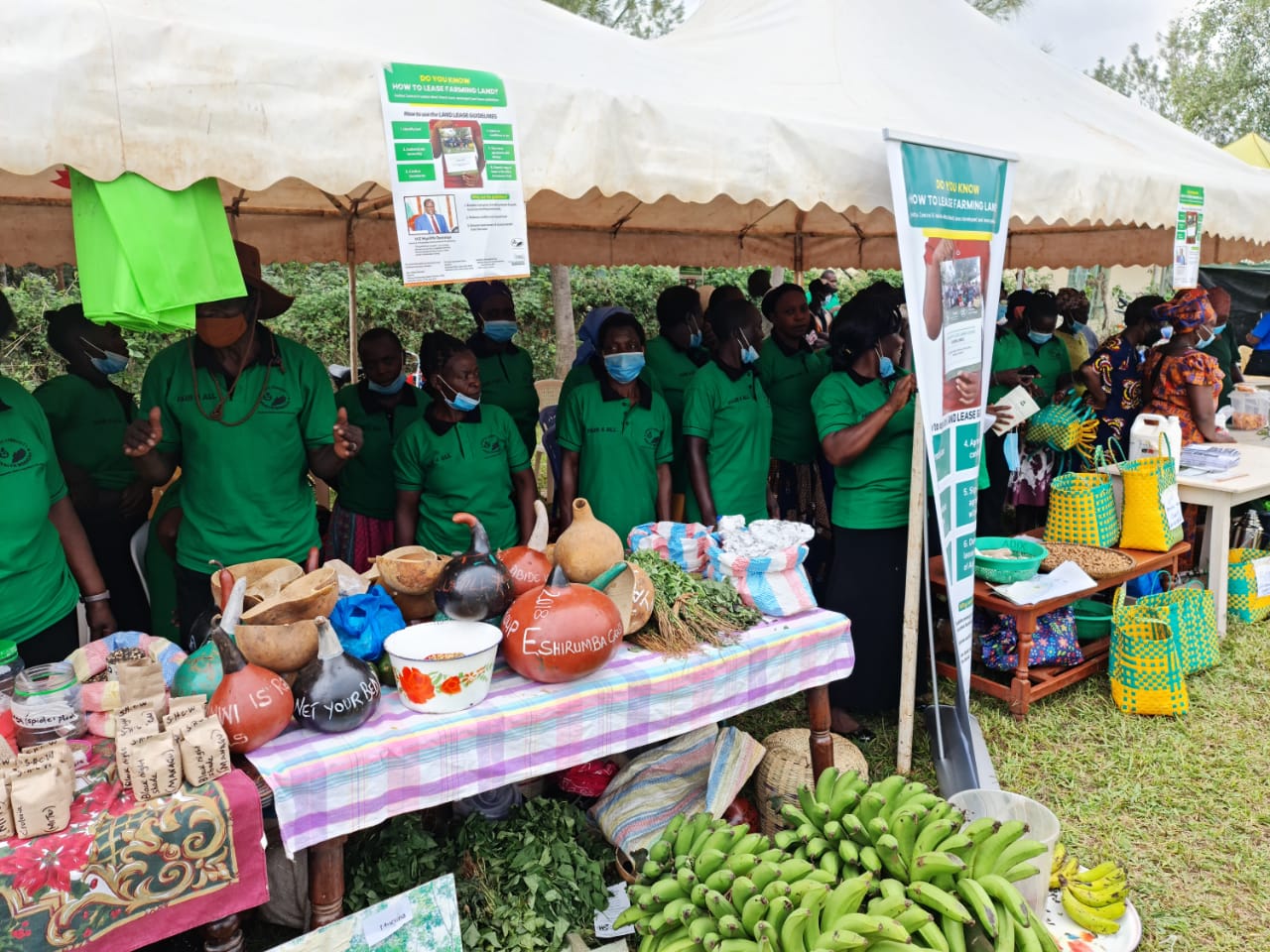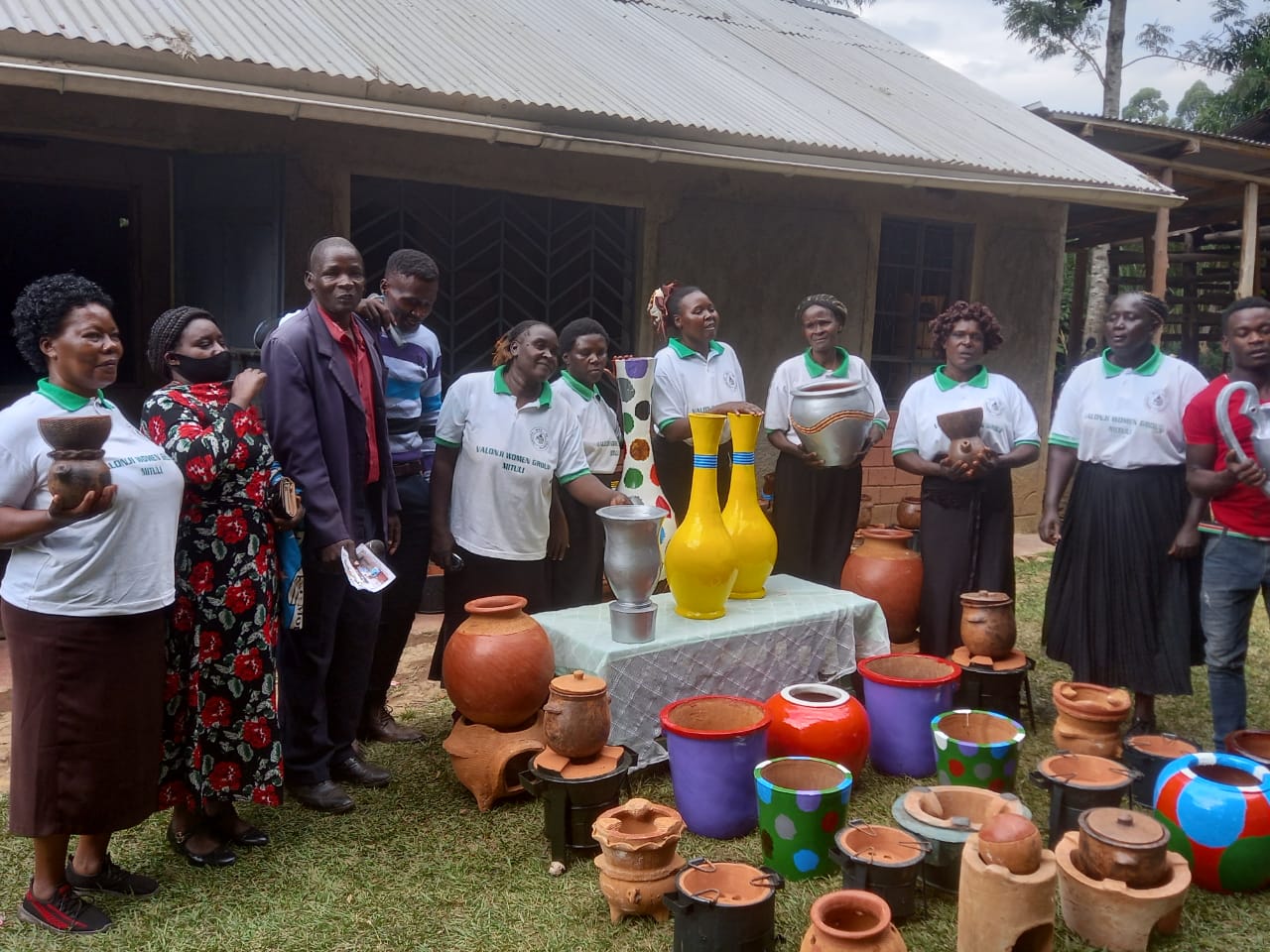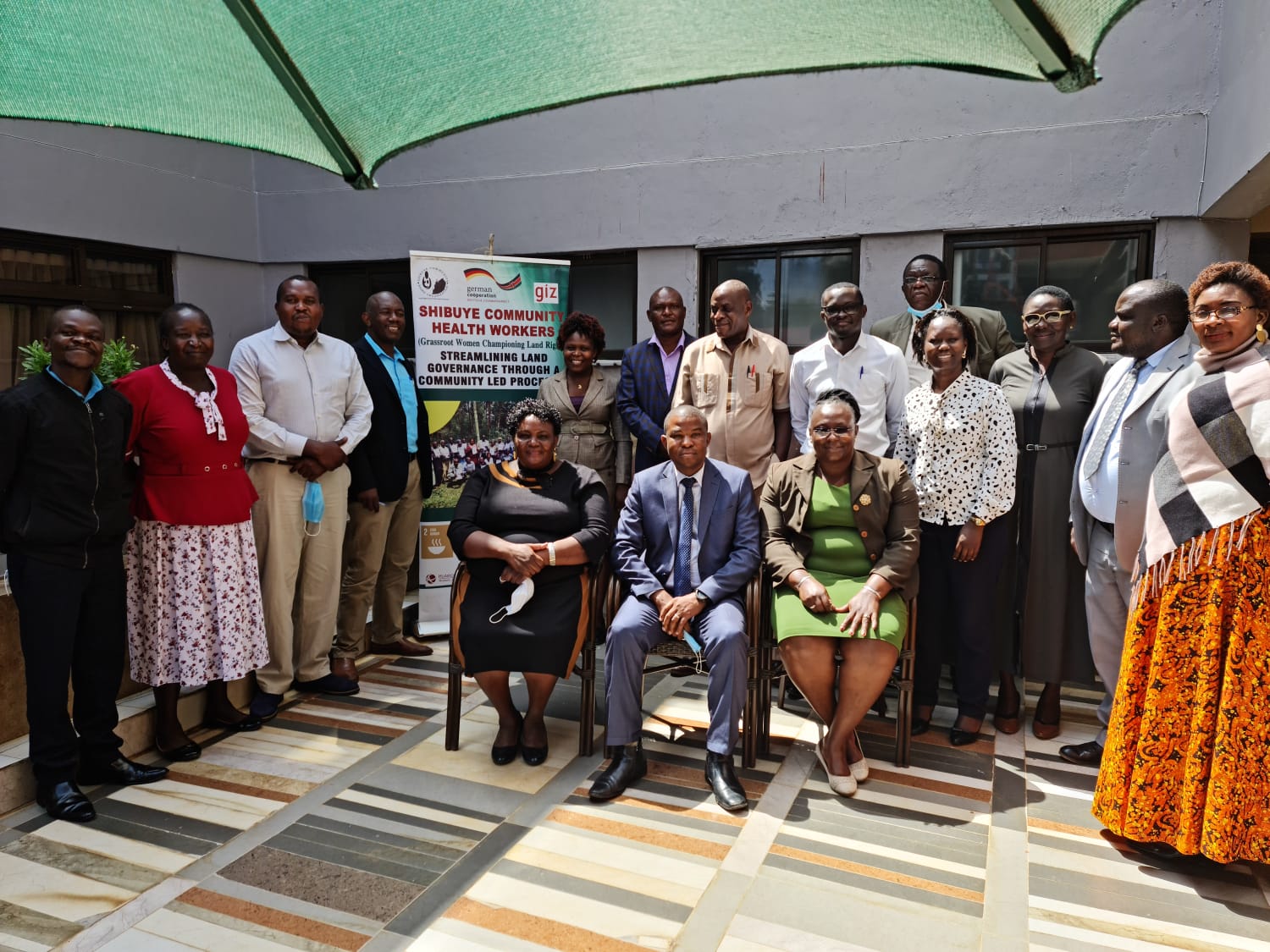Grassroots women driving community resilience in Kenya
Patient, predictable, accessible funding
Address structural inequalities
Devolve decision making
Build understanding
Invest in local capabilities
Organization: Shibuye Community Health Workers
Donor: Swedish International Development Agency (SIDA), Climate Justice Resilience Fund (CJRF), Margaret A. Cargill Foundation (MACF) through the Huairou Commission’s Community Resilience Fund
Beneficiaries: 6,000
Through mobilizing and organizing local communities, promoting peer learning, and identifying policy priorities and developing plans with the government, grassroot women’s groups in Kenya are enhancing community resilience to address climate change-related challenges such as extreme weather hazards that affect food and livelihoods of grassroots communities.
In western Kenya, people living in economically disadvantaged communities all too often lack the financial resources required to plan, fund and execute solutions to climate change – something Shibuye Community Health Workers, a grassroot women-led community-based organization, is working to change.

“The moment grassroots women have their own money for community resilience planning, and they sit together with the government to co-develop and contribute to the implementation of those plans, it really shifts the power dynamics between them and the government,” says Violet Shivutse, grassroots women’s leader and farmer, and Founder-Director of Shibuye Community Health Workers. ”This gives us [grassroots women] the confidence to negotiate with them [the government] as partners, not as beneficiaries."
The organization Violet represents, Shibuye Community Health Workers, supports rural communities in western Kenya to build climate resilience, and is a member of the Huairou Commission – a grassroots women-led global social movement focused on empowering women in poor urban, rural, indigenous and other marginalized communities, helping them to build resilient and equitable communities across more than 40 countries.
As a member of the Huairou Commission, Shibuye Community Health Workers distributes the Community Resilience Fund (CRF) to members of existing self-help groups. These include farmer/producer cooperatives, savings and credit groups, caregiver groups and informal housing and settlement associations, all of who live in impoverished rural communities exposed to climate and disaster risks.

“Grassroots women have learned, over a period of time, how to cope with the long spells of drought or with heavy rainfall and still be able to produce food. We started with consolidating our own knowledge, developed tools to understand the impacts of climate change, and trained each other to address these challenges," says Violet.
“One of the biggest problems we experience tackling the climatic impacts is a lack of funding. To solve this, we began by testing a process that we have learned from India: forming women’s groups to save our own money, identifying priority activities, and using our own funds to implement them," she adds.
The Community Resilience Fund (CRF), which was designed by the Huairou Commission and its partners, supports grassroots women’s groups to deliver effective pro-poor disaster risk reduction and resilience building practices, facilitating collaboration with local and national governments to scale-up grassroots and women-led development initiatives. It serves as an innovative and flexible finance mechanism to channel resources directly to grassroots women’s groups living in risk-prone, poor communities.

“When we started implementing the CRF, we first conducted mapping and identified the impacts of climate change in our community. This was a big milestone,” says Violet. “The findings were shared in community meetings with local leaders, the agriculture department and other NGOs. This has changed people's perception of us from mere women farmers to leaders."
By utilizing community risk mapping, grassroots women collectively make plans and initiate strategies and practices to build community resilience, based on an understanding of how risk and vulnerability affect them. They also forge new collaborations and leverage additional resources from external partners to scale up and strengthen grassroots-led resilience practices.
To access the funds, members from Shibuye complete a form detailing their needs and a plan for the utilization of resources. An independent committee of grassroots women reviews all the applications and decides which applications go forward, and whether support will be in the form of cash, tools or other purchased inputs.
Shibuye has leveraged the CRF to attract investments from various government institutions. Working closely with the Department of Agriculture, the CRF has reached over 1,600 small and marginal farmers in the past seven months, enhancing their climate-smart agricultural practices and natural resources management in six Counties of Kenya.

Additional funds are provided in the form of cash, in-kind support such as seeds and other agricultural inputs, capital for women’s entrepreneurship, investment in collective assets such as basic infrastructure and services, capacity building opportunities and technical support – all of which help to expand and sustain resilience building efforts.
Bringing different stakeholders together is at the heart of the initiative, underlines Violet:
“The uniqueness of the CRF is the opportunity for joint planning among grassroot leaders, government and other relevant stakeholders, which creates community ownership in the planning and implementation of local development projects."
In the future, Shibuye is planning to organize 500 grassroots women farmers and resilience practitioners into a cooperative to lend larger sums of money to members, expand markets for farm produce, and act as a bridge between grassroots women and microfinance institutions.
Through the CRF, Violet and her fellow women leaders have been able to demonstrate how it is possible for grassroot women to identify policy priorities and influence policy decisions at the County level.
“Through our work, we have been able to secure and pilot the first 'Governor's Day with Farmers’ – endorsed by the Kakamega County Governor – during which farmers can sit with the governor to set priorities and influence policy planning. Grassroots women from Shibuye will also have a formal presence in the budget-making process."